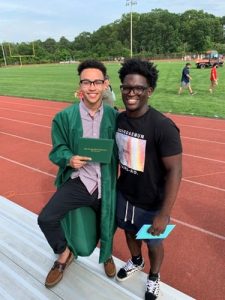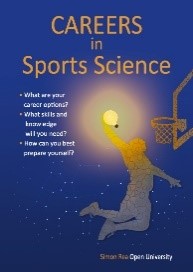By Simon Rea
Firstly, welcome to The Open University and I hope you enjoy your studies with us. You have started on an exciting path of study and hopefully a rewarding future career. There are great opportunities to work in grass roots sport, performance sport, health and fitness, coaching and teaching and exercise science. However, sport and fitness courses are now one of the most popular undergraduate courses studied at university. There are now over 80 higher education institutions offering degrees and around 15,000 students graduating every year. While there are good jobs available the competition is very strong even before you consider the number of students studying for Masters degrees and PhDs.
Employers recognise that Open University students have to show special skills to organise their busy lives, hold down a job and plan their studies. However, that may not be enough to make you stand out from the crowd when it comes to applying for jobs. You need to be competitive in the job market and this may involve you showing skills beyond those of achieving a degree.
Between 2017 and 2019 I interviewed over 20 people currently working in sport and fitness occupations to find out what skills and qualities are needed to work effectively in sport and fitness roles. Many of the respondents explained how sport and fitness environments can be complex and challenging. This is because they involve people but also people who are goal directed and often high achievers. Sports environments tend to be highly pressurised and constantly changing and you need particular skills to navigate through them. You need to have skills to work with people who may be your colleagues or your clients. Being able to develop and maintain relationships is central to your success in sport and fitness.
In this blog I offer three tips that will help to improve your employability and effectiveness when you are in the workplace.
1. Get as much experience as you can from wherever you can.
Everyone I interviewed stressed the importance of gaining experience. All experience of working with people is valuable because you can then learn about your communication, listening and other personal skills. However, the main reason is that it is the best way to develop skills that are needed in the workplace. The only way to show an employer that you can do a job is by showing them that you have done it before. If you have spent the previous three or more years studying, then you can show that you have the knowledge but there is no evidence that you will be able to apply it in real life situations.
Experience can come from work experience placements or internships or you can volunteer at local sports clubs and offer to help. This may involve setting up equipment, helping with timings or preparing and handling out drinks. Once you are in a sports environment there may be opportunities to share your knowledge with coaches and athletes.
In addition to gaining experience you also need to be able to learn from your experiences by reflecting or reviewing them. This can be done by asking yourself reflective questions or discussing your performance with other people. This reflective approach is covered in module E119.
2. Gain as much knowledge as you can about as many disciplines in sports science as possible.
While I said that knowledge alone may not get you a job it is still incredibly important when working in sport and fitness. The study of sport is multidisciplinary in that it involves anatomy and physiology, exercise physiology, sport psychology, biomechanics, nutrition as well as research skills. During your studies with us you will cover all these disciplines and also learn about coaching and instructional skills. However, due to the wide scope of your studies you may not cover everything in detail. Firstly, I would encourage you to engage with all the module resources and further reading where it is suggested but also read widely in relevant textbooks, journal articles and respected websites. Listen to as many sports related podcasts and watch programmes that can contribute to your learning.
By taking in as much knowledge as you can you will start to learn about the range of occupations in sport and fitness and the knowledge that different specialists will have. In performance sport the support team may be made up of exercise physiologists, sport psychologists, performance analysts, strength and conditioning coaches, nutritionists and it is important to understand what these people are saying so that you can develop working relationships with them. As a fitness trainer you may be called upon to advise on nutrition and psychology as well as training methods and the more you know about these disciplines the greater credibility you will have.
3. Find opportunities to share your knowledge.
One way to gain experience and apply your new-found knowledge is to offer advice and support to friends and family. You need to remember that most people don’t know about things we may consider to be basic, such as how to stretch, how to train effectively and what to eat. There are also a lot of fallacies or misunderstandings about the best way to train and recover and you can provide the science to address these.
As you progress in your studies you will be able to offer advice to people. For example, you may have a friend who wants to run a half marathon, complete the London to Brighton cycle ride or start training at the gym. You can let them know that you are studying sport and fitness and would like to advise them. You could write a blog about what you have been doing and make social media posts about their progress. This may lead to other people asking for your advice.
This type of activity is useful as a learning experience and also understanding how your new-found knowledge can be put into practice. It may mimic the type of work you will do in the future and be something that you could discuss in an interview.
These three things will help to enhance your employability skills and bring your knowledge to life.
This article is based on content from Simon’s recently published book Careers in Sports Science. In this book Simon Rea presents the findings of 20 interviews with people working in sports science roles. This includes the personal skills needed to work in sport and more advice about how to develop these skills. This book is available as a paperback or eBook at www.simonreasportscience.co.uk or through the Amazon bookstore search ‘Careers in Sports Science’.




